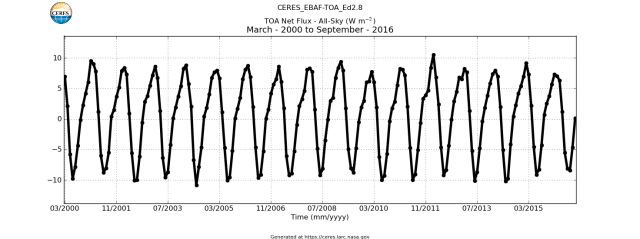- Joined
- Jan 25, 2012
- Messages
- 44,586
- Reaction score
- 14,463
- Location
- Texas
- Gender
- Male
- Political Leaning
- Conservative
No, many people on the Left are not just shutting down conversation on the science of climate change, they are shutting down all aspects of that conversation. When I bring up the economic side, I'm often preached to about the importance of solving global warming and told there is no room for debate on this because it is settled. And as someone else mentioned, there is a lot within Climate Science that is not decided. If the Science is settled, why are articles like these being published: Global warming may be occurring more slowly than previously thought, study suggests | The Independent
Also, you mock my usage of the term "the Left" but you say nothing about my usage of the term "the Right". I don't use these terms disparagingly, merely to recognize who I'm talking about in general in a simple way that makes sense. It's merely a term of convenience. As I've said before, while I may not pass the purity test of many on the Left, I consider myself to be more left than right, hence my "slightly liberal" tag.
My tech gadgets don't last me as long or cost me as much as solar panels, and many of them don't have competition. I'm not a fan of your analogy. A lot of people buy hybrid vehicles for non-economic reasons. They know they are paying more and they don't care. In cases where it is actually economically better to buy a hybrid, that only shows that the natural market will gear towards renewables the more economically feasible they become without forcing them on people. Furthermore, hybrids show exactly why a diversity of energy is a good idea. It is an example of a diversity of energy. Hybrids wouldn't exist if fossil fuels were banned. We'd have electric cars, which have their limitations. Battery costs are a huge problem, and the distance one can travel is a problem, too. The power of the vehicle is a problem. Where I worked with a construction company, there was an electric- and gas-powered forklift. We couldn't use the electric forklift for half of the things we needed to use because it wasn't powerful enough.
Your idea is to take off subsidies for the most cost-effective and pragmatic form of vehicle energy and put that money towards R&D of renewables with no short-term effect, and in the mean time, your policy will destroy our economic well-being, cause massive inflation, will raise the costs of all goods in society, and it will harm the poor the most. So then when food skyrockets, the government will have to raise minimum wage, welfare programs, etc. and that will create even more inflation. Then you'll see companies firing people by the masses and replace them with robots, creating higher unemployment, a huge burden on insurance companies, and a huge burden on the government yet again. Your policy would quite literally lead to massive hardship in this country, and a recession if not a depression. Or, we could keep the subsidies, continue to develop alternatives, and then introduce them to the economy as they become economically viable, with actual economic gain rather than economic hardship. Funny how your morals don't care about the poor people you would be harming.
Thank you for trying to bring some reason to the discussion!
One of my issues with the entire AGW thing, is I think they have not identified the correct problem.
Our problem is energy not CO2. If we solve the energy problem, reduced CO2 emissions will simply be a by product.
Solar and wind energy lack density and duty cycle, I.E. they are not available when you need them or in the quantity needed.
To make them viable, we need some form of energy storage that allows the energy to be accumulated in an energy dense container.
Nature does this with hydrocarbons.
As we add the alternative cyclic energy sources to the power grid, we will start to see massive supply swings, seasonal surpluses,
where the supply exceeds demands for many hours a day.
I can see the refineries storing these surpluses to liquid fuels for their supply chains.
To do this they will need massive amounts of carbon, from atmospheric CO2.
The fuels produced would be carbon neutral, whose burning will add no CO2 to the atmosphere.
While small companies (and the Navy) are known to be working on this, the large oil companies also have a history of research.
I think around $90 a barrel oil, the efficiency of the process and the price of wholesale electricity,
will be the point where the man made fuels will be the most profitable choice for the refineries.

